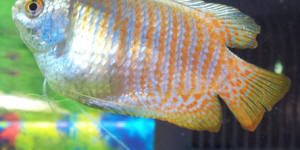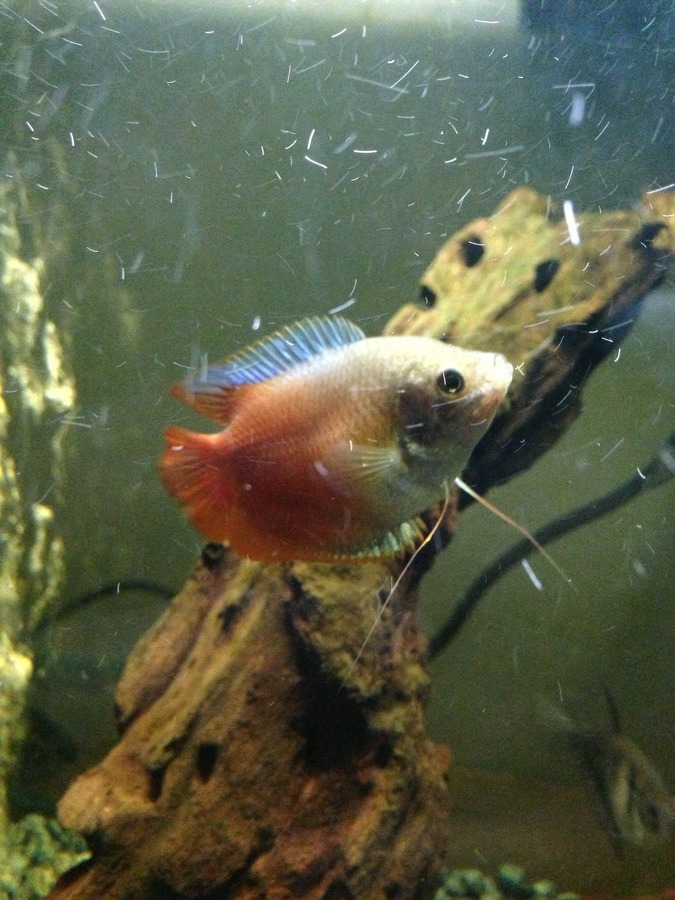My dwarf gourami is bloated.....I got him two days ago, and I noticed the bloatedness yesterday evening. What should I do?
I don't know how to post of picture of him on here, however, I looked for similar pictures of bloated dwarf gouramis and he looks something like this:




Other than the bloatedness, he is perfectly healthy, except that he hides all the time. He's very timid. Also, he only ate once. That was the first meal I offered him after he came home. Now, he hasn't eaten for four meals. Help!
I don't know how to post of picture of him on here, however, I looked for similar pictures of bloated dwarf gouramis and he looks something like this:



Other than the bloatedness, he is perfectly healthy, except that he hides all the time. He's very timid. Also, he only ate once. That was the first meal I offered him after he came home. Now, he hasn't eaten for four meals. Help!





